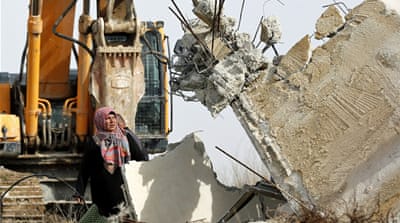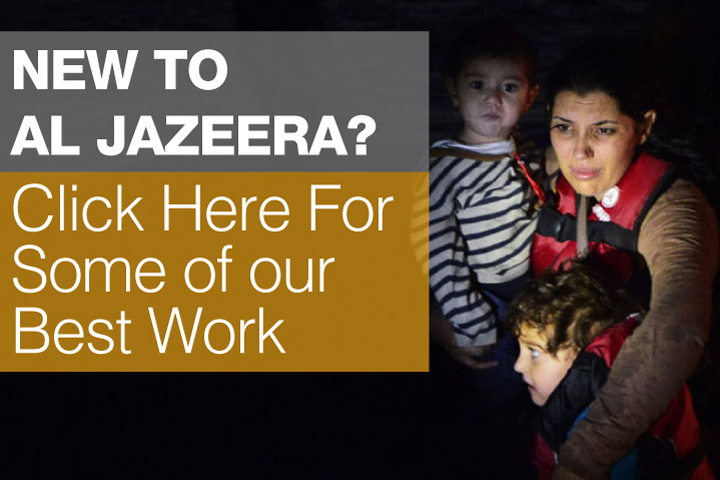Homes belonging to Palestinians accused of targeting Israelis have been razed in Occupied West Bank, leading to clashes.
![Israel tears down seven Palestinian homes in 24 hours Since the beginning of this year, Israel has demolished on average 29 Palestinian-owned buildings a week, according to the UN [Filepic: EPA]](http://www.aljazeera.com/mritems/imagecache/mbdxxlarge/mritems/Images/2016/4/4/ceb06fa3d16545d295bae50fcfea7158_18.jpg)
Ramallah, Occupied West Bank – Seven Palestinian homes have been demolished in the past 24 hours across the Occupied West Bank – a move dubbed by Palestinian leaders as “collective punishment”.
The list of demolished structures includes three houses in Qabatiya town south of Jenin belonging to families of a trio gunned down in February after they killed an Israeli soldier.
Overnight on Monday, Israeli forces destroyed the family homes of Ahmad Zakarneh, Mohammad Kmeel and Ahmad Abu el-Rub, who fatally shot an Israeli border policewoman near Jerusalem’s Damascus Gate.
Four other homes were also razed in the Occupied East Jerusalem and villages of Surif and Duma in West Bank.
Clashes erupted in Qabatiya following the demolitions, with five Palestinians taken to hospital in Jenin after they were shot with rubber-coated steel bullets.
The family of a fourth man – incarcerated by Israel following accusations of aiding the three young men – was also handed a demolition order.
Qabatiya, home to 20,000 Palestinians, has been completely sealed off by the Israeli army twice in recent months, and many of its inhabitants have had their work permits revoked.
At least 10 Palestinians from the town have also been killed by Israeli forces since October last year.
In a wave of attacks since October last year – carried mostly by young, disgruntled Palestinian youths – at least 33 Israelis and foreign nationals have died.
Nearly 200 Palestinians, including civilians, assailants and others whom Israeli officials claim were armed with knives, have been killed.
Since September last year, 57 houses belonging to Palestinians have been levelled, according to the Palestine Liberation Organisation’s negotiations affairs department.
READ MORE: How impunity defines Israel and victimises Palestinians
Israel halted the punitive practice it regularly uses against Palestinians in 2005 after an internal commission found that it did not deter attacks. But the policy was revived last year despite the recommendations, and slammed by rights groups as a form of collective punishment.
“This is an arbitrary policy that affects everyone indiscriminately,” said Ahmad Kmeel, Mohammad’s father. “How is [it] the fault of the father, mother and the children? No one knew what he was going to do.”
Israel’s Supreme Court paved the way for the demolitions after it turned down appeals made on behalf of the families. Rajeh Zakarneh, Ahmad’s father, said the family dismantled and moved furniture after losing the petition.
“I built this house with my own two hands,” Zakarneh told Al Jazeera. “But my son is worth more than a thousand homes.”
![Israeli settlement in the E1 corridor would connect Jerusalem to a large settlement bloc in West Bank [File: Rich Wiles/Al Jazeera]](http://www.aljazeera.com/mritems/imagecache/mbdresplarge/mritems/Images/2015/11/25/0c4314f8f7794d1ab15b7544e2e8d85e_18.jpg)
Earlier on Sunday, the court had cancelled home-demolition orders for three of four Palestinians convicted of being involved in a stone-throwing attack in September that led to the death of an Israeli motorist. Najeh Abu el-Rub, Ahmad’s father, had hoped the court would also overturn the decision to raze his family home.
“We turned to the courts but that did nothing for us. They insisted on destroying the houses,” Abu el-Rub said.
Chief Palestinian negotiator Sa’eb Erekat said the house demolitions were tantamount to acts of “collective punishment” that were being reported to the International Criminal Court.
“Granting impunity for continued Israeli crimes will not achieve a resumption of negotiations. Rather, it is killing any realistic political horizon to end the Israeli occupation of the State of Palestine,” Erekat said.

